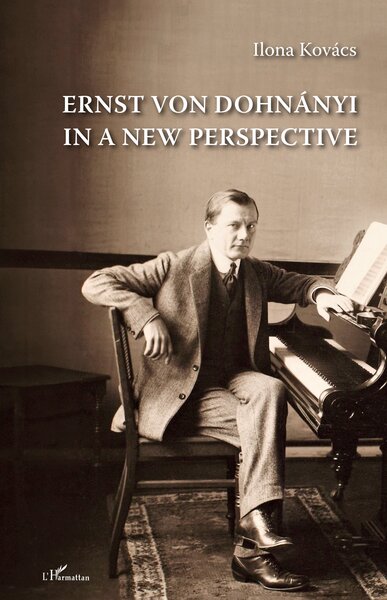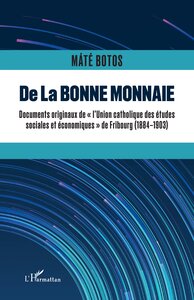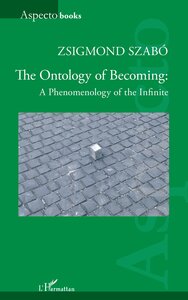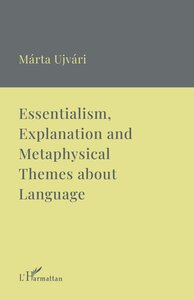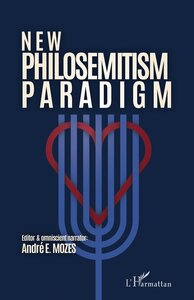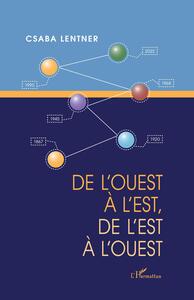Nous utilisons des cookies pour améliorer votre expérience. Pour nous conformer à la nouvelle directive sur la vie privée, nous devons demander votre consentement à l’utilisation de ces cookies. En savoir plus.
Ernst von Dohnányi in a New Perspective
L'Harmattan - EAN : 9782140343230
Édition papier
EAN : 9782140343230
Paru le : 21 mars 2024
27,00 €
25,59 €
Disponible
Pour connaître votre prix et commander, identifiez-vous
Notre engagement qualité
-
 Livraison gratuite
Livraison gratuite
en France sans minimum
de commande -
 Manquants maintenus
Manquants maintenus
en commande
automatiquement -
 Un interlocuteur
Un interlocuteur
unique pour toutes
vos commandes -
 Toutes les licences
Toutes les licences
numériques du marché
au tarif éditeur -
 Assistance téléphonique
Assistance téléphonique
personalisée sur le
numérique -
 Service client
Service client
Du Lundi au vendredi
de 9h à 18h
- EAN13 : 9782140343230
- Collection : HARMATTAN HONGR
- Editeur : L'Harmattan
- Date Parution : 21 mars 2024
- Disponibilite : Disponible
- Barème de remise : NS
- Nombre de pages : 364
- Format : H:240 mm L:155 mm E:20 mm
- Poids : 550gr
- Résumé : Ernő Dohnányi (1877–1960) was one of the most influential musicians of 20th century Hungarian music history. As the chairman-conductor he led the Philharmonic Orchestra for a quarter of a century from 1919; he was the director of the Academy of Music twice – in 1919 and in 1934–1943; from 1931 he was also the head of the music department of the Hungarian Radio. His positions required him to perform diverse social functions, including his role as a member of the Upper House of the Hungarian Parliament. First and foremost, however, he was one of the greatest pianists and outstanding composers of his age. Research into his œuvre gained new momentum in the 1990s thanks to, among others, the author of the present volume, who already became a devoted researcher of the Dohnányi œuvre when she was still a student of musicology at the Academy of Music in Budapest.
- Biographie : Professor of the Hungarian Dance University Ilona Kovács obtained her PhD degree at the Liszt Ferenc Academy of Music. Her doctoral research focused on Dohnányi’s music, especially his chamber pieces. For years she has examined not only the primary sources available in the National Széchényi Library in Budapest but also the autograph sketches held in the British Library in London, which opened a new perspective in the study of the Dohnányi manuscripts. The important outcome of nearly a quarter-century’s worth of research, including groundwork, is the volume entitled Ernst von Dohnányi in a New Perspective, a collection of studies published in the past fifteen years. Using the tools of modern musicology, the researcher illuminates the so-far unknown facets of the œuvre with studies arranged into four thematic groups. The scholarly achievement of this volume has considerably enriched Dohnányi-research in Hungary. The author cherishes the hope that the book’s conclusions will have an impact on the attitudes of the performers of his pieces and on music education from the most basic to the highest levels.

